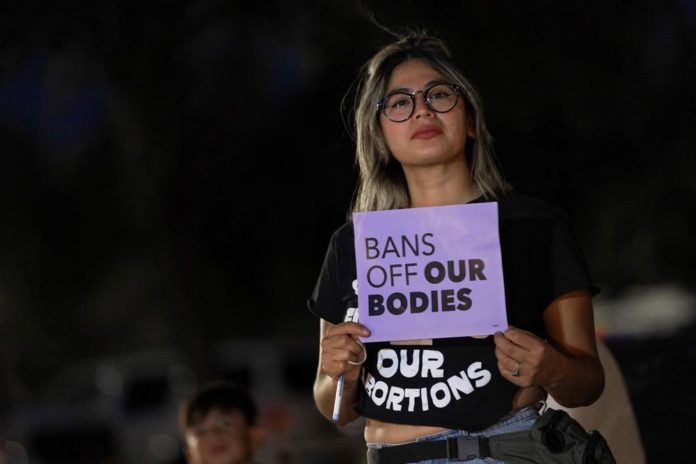
Arizona for Abortion Access launched a signature-gathering campaign for an initiative on Sep. 21, 2023. The ballot initiative, which would appear on the ballot in Nov. 2024, would establish a state constitutional right to abortion before the point of fetal viability (defined as the point of pregnancy when there is a significant chance of the survival of the fetus outside of the uterus without the application of extraordinary medical measures).
The campaign said, “There are many reasons why someone may decide to have an abortion. But no matter how you personally feel about abortion, every person should be able to make their own decisions with their healthcare provider and those they love and trust.”
Currently, abortion is legal in Arizona for up to 15 weeks. Prior to the 15-week ban signed into law in 2022, abortions were legal in Arizona up to the point of fetal viability.
To qualify for the Nov. 2024 ballot, the campaign must submit 383,923 valid signatures by July 4, 2024. Chris Love, senior advisor of the Arizona for Abortion Access campaign, said, “We want to at least come in with twice the amount of valid signatures that we need. So that’ll put us over 600,000. We have an army of volunteers, and we have a paid firm that will be out collecting at the same time. And, you know, that’s just necessary in this time of these times, especially because of the large volume of signatures that we need to gather.”
The initiative has been endorsed by the ACLU of Arizona, NARAL Arizona, Planned Parenthood Advocates of Arizona, Arizona List, Healthcare Rising Arizona, and Affirm Sexual and Reproductive Health.
Cathi Herod, president of the Center for Arizona Policy Action, said, “The broad exception of mental health to the viability standard would allow abortions for virtually any reason up until the moment of birth. The measure is full of vague, undefined terms.”
Voters in Ohio will decide on Issue 1 on Nov. 3, 2023, which would establish a state constitutional right to “make and carry out one’s own reproductive decisions,” including decisions about abortion, contraception, and other reproductive matters.
In 2022, there were six ballot measures addressing abortion — the most on record for a single year. Measures were approved in California, Michigan, and Vermont. Measures were defeated in Kansas, Kentucky, and Montana.
Arizonans for Reproductive Freedom filed an initiative to create a state constitutional right to reproductive freedom in 2022 but did not file signatures. The campaign reported that more than 175,000 signatures were collected during the 61 days between filing the proposal and the signature deadline. At least 356,467 valid signatures were required. On Twitter, the campaign stated, “Arizonans for Reproductive Freedom will continue to harness the passion of the movement to ensure the measure qualifies for the 2024 ballot.”
From 1970 to Nov. 2022, there were 53 abortion-related ballot measures, and 43 (81%) of these had the support of organizations that described themselves as pro-life. Voters approved 11 (26%) and rejected 32 (74%) of these 43 ballot measures. The other 10 abortion-related ballot measures had the support of organizations that described themselves as pro-choice or pro-reproductive rights. Voters approved seven (70%) and rejected three (30%).
Before Roe v. Wade in 1973, three abortion-related measures were on the ballot in Michigan, North Dakota, and Washington, and each was designed to allow abortion in its respective state.
Republished with the permission of The Center Square.













